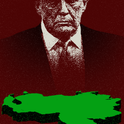Since news of coronavirus first broke at the turn of this year financial markets have behaved perversely. Despite the scale of the new disease in China and its rapid spread to many other countries, equities in America and Europe continued to make gains, reaching new heights last week. Only now do the scales seem to be dropping from investors’ eyes, with steep falls in stock markets on Monday following a reverse on Friday.
There was a rationale of sorts for keeping faith in equities this year even as coronavirus cases and deaths multiplied. China adopted draconian measures to contain the virus in its epicentre Wuhan and the province of Hubei. Recent figures suggested there was a tapering-off in the number of new cases there. Although the virus had spread to around 30 other countries by the end of last week, the number of cases outside China was relatively low, making up less than 2,000 out of a total 78,800 on Sunday, on figures from the World Health Organisation.
If the virus could be successfully contained within and outside China, then any knock to growth would be temporary, with a subsequent rebound making up most of the lost ground. Furthermore, equities would benefit from central banks loosening monetary policy even more. By pushing down bond yields that would boost the attractions of holding shares. This argument was particularly powerful in America because its central bank, the Federal Reserve, has the most scope among developed economies to cut interest rates.
But the equity enthusiasts have been guilty of wishful thinking. The Chinese figures have been suspect from the start. On 22nd January China was reporting 440 cases, but researchers at Imperial College London estimated that on 18th January there were already 4,000 cases in Wuhan. This suggests that the reported total in China could be far too low and calls into question more recent figures showing a decline in new cases.
What has now finally swayed investors is the rapid escalation of cases outside China. In South Korea, the number of cases more than doubled on Saturday, to 433, and reached 833 today. Until this weekend there was only a handful of cases in Italy but the number there has jumped to over 200 today today with seven deaths also reported.
The World Health Organisation says it is too early to call coronavirus (strictly COVID-19) a pandemic but it gives every appearance of becoming one. As well as the toll of misery for those who succumb to the disease and their families, the economic impact is also likely to be severe. Coronavirus has already disrupted the Chinese economy, with knock-on effects to its trading partners. Uncertainty about the eventual international scale of the epidemic and its effects will exacerbate harm by holding back investment projects.
There are already some clear business losers outside China. One such sector is luxury goods which relies heavily on Chinese appetite for such products. Another is tourism, which will suffer from the absence of big-spending Chinese visitors. Airlines are already taking a hit as people avoid travel.
These kinds of effects occur through lower demand, for which there is at least a potential remedy through fiscal and monetary easing. But the real economic threat of coronavirus is its impact on supply for which there is no equivalent remedy. Already the interruption to work in China is disrupting global supply chains, affecting for example British car manufacturer Jaguar Land Rover, which has been flying parts out of China in suitcases and could run short in March. Apple warned a week ago that “worldwide iPhone supply will be temporarily constrained” owing to the impact of coronavirus in China.
This kind of disruption will grow if the epidemic takes a grip elsewhere. Already, Italy has had to quarantine towns in the northern regions of Lombardy and Veneto. On Sunday Austria temporarily suspended train services from its neighbour. If these kinds of blockages proliferate they will potentially be more serious even than Trump’s imposition of tariffs on imports from China, because there isn’t the same scope and notice to source trade elsewhere.
Markets are now starting to factor in much more serious economic harm from coronavirus. They have a message for Boris Johnson, too. The blockages the disease is creating look worryingly like a dry run for a no-deal Brexit at the end of this year, which would affect far more British trade and commerce than that with China. Populist bluster is no solution for either the coronavirus crisis or Britain’s future trading relationship with the European Union.
Markets wake up to the impact of coronavirus
An epidemiological calamity could bring about an economic one
February 24, 2020

(200224) -- CHENGDU, Feb. 24, 2020 (Xinhua) -- Staff process nucleic acid test chip at the plant of a Chengdu-based biotech company in southwest China's Sichuan Province, Feb. 24, 2020. A newly developed nucleic acid test chip that can detect and distingu











